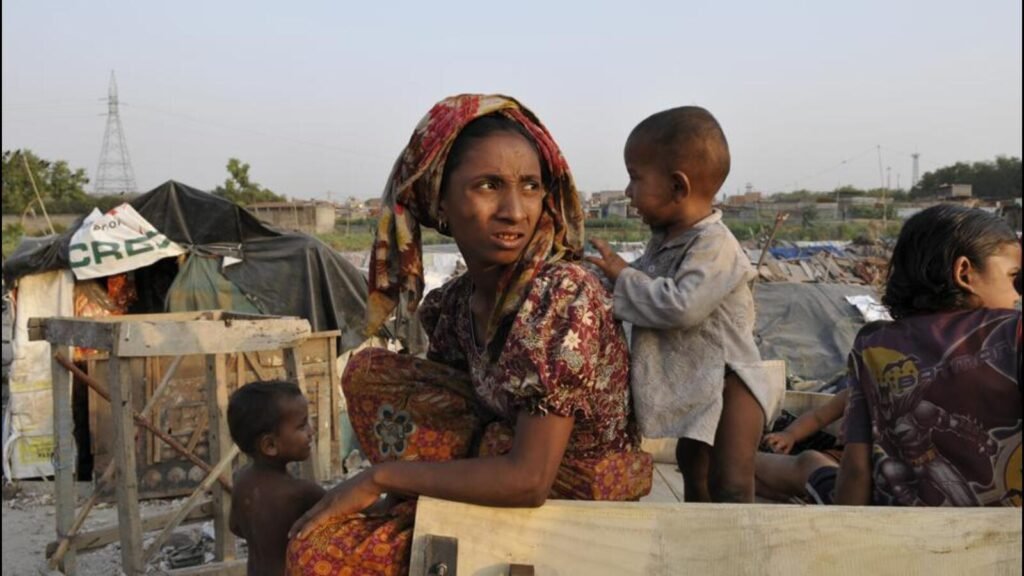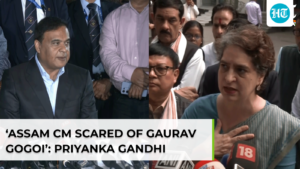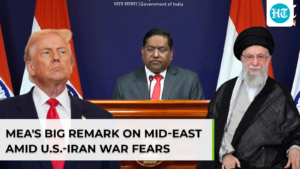
True character is revealed not in comfort, but in crisis. And India has passed that test before. Our tradition of sheltering the persecuted is neither recent nor accidental. In 1959, when the Dalai Lama and thousands of Tibetans fled Chinese persecution, India didn’t just open its borders, we helped build a community in exile that thrives to this day. That moment — and others such as the 1971 Bangladesh Liberation War, and the civil conflicts in Sri Lanka and Afghanistan — cemented India’s global image as a democracy with a moral compass.

The current Rohingya crisis must be seen in the light of this legacy. With the Supreme Court now hearing critical petitions, this moment may well determine whether India upholds or departs from that legacy. The Rohingyas are a persecuted Muslim minority from Myanmar’s Rakhine State, many of whom fled to neighboring countries following violence and military crackdowns, especially in 2017. The United Nations has described their plight as a “textbook example of ethnic cleansing”. As per government estimates, there are currently 40,000 Rohingya Muslims living in various parts of India. They live in overcrowded camps with little access to education, health care, or sanitation. And their presence here has sparked complex legal and constitutional debates.
India is not a signatory to the 1951 Refugee Convention or its 1967 Protocol, nor does it have a dedicated domestic refugee law. This legal vacuum lies at the heart of the debate. Although many Rohingya persons hold UNHCR-issued identity cards, they face significant legal challenges due to this absence of a formal protection framework. As a result, many are treated as illegal immigrants, subject to detention and deportation.
The crux of this legal battle now lies in a case before the Supreme Court: Mohammad Salimullah & Anr. v. Union of IndiaA petition filed by two Rohingya individuals challenging India’s sweeping categorization of Rohingyas as illegal immigrants without regard to individual circumstances of persecution. The case also contests the government’s reported plan to deport 40,000 Rohingyas to Myanmar, arguing that deportation violates the principle of non-refoulement, which is binding under customary international law.
And so, the Supreme Court must now examine questions that go beyond deportation. Is the principle of non-refoulement (which prohibits returning refugees to a country where they face persecution), even if not codified in Indian law, binding? Are Rohingya refugees entitled to protection under Articles 14 (Equality) and 21 (Life and Liberty) of the Indian Constitution? And, importantly, do fundamental rights in India’s Constitution apply to non-citizens?
The government stance centers on national security concerns: It is alleged that some Rohingya may have links to militant groups such as the Inter-Services Intelligence (ISI) and ISIS. But lack of concrete evidence has led civil society and legal experts to demand greater transparency and accountability. These concerns also arise against a backdrop of public debate over alleged discriminatory treatment of Muslims in India, with critics arguing that the Rohingya face harsher crackdowns than other refugees on account of their religious identity.
India’s international reputation too faces a long shadow as allegations of mistreatment and extrajudicial deportation continue to attract global scrutiny. According to some reports published earlier this year, around 40 Rohingya individuals were transported to the Andaman Islands blindfolded, shackled, and subsequently forced into the sea. Some survivors, according to these reports, swam ashore. Several international media outlets published survivor testimonies, though some reports have challenged the story. India, however, did not comment on these accounts. Meanwhile, the Court has declined to grant interim relief citing insufficient evidence. During oral observations, it referred to the account as a “beautifully crafted story”. On October 8, the Court also criticized UNHCR for issuing refugee cards too freely, remarking, “They’ve opened a showroom here.”
So, what does this crisis mean for India? While India is not legally bound by the Refugee Convention and lacks formal domestic refugee laws, the principle of non-refoulement is widely recognized as customary international law, carrying considerable moral and legal heft. More importantly, beyond international treaties, we are ultimately bound by something deeper — our constitutional values and the promise of equality, dignity, and liberty for all persons. Not just citizens. And so, the Rohingya crisis brings us to a crossroads. The world has long looked to our nation as a democracy that balances sovereignty with humanitarian values. It is in our interest that they continue to do so. Because India’s greatness has never come from its might, but from its moral clarity. That is our true heritage.
Insiyah Vahanvaty is a socio-political writer and Author of ‘The Fearless Judge’. Ashish Bharadwaj is professor & dean, BITS Pilani’s Law School in Mumbai. The views expressed are personal






